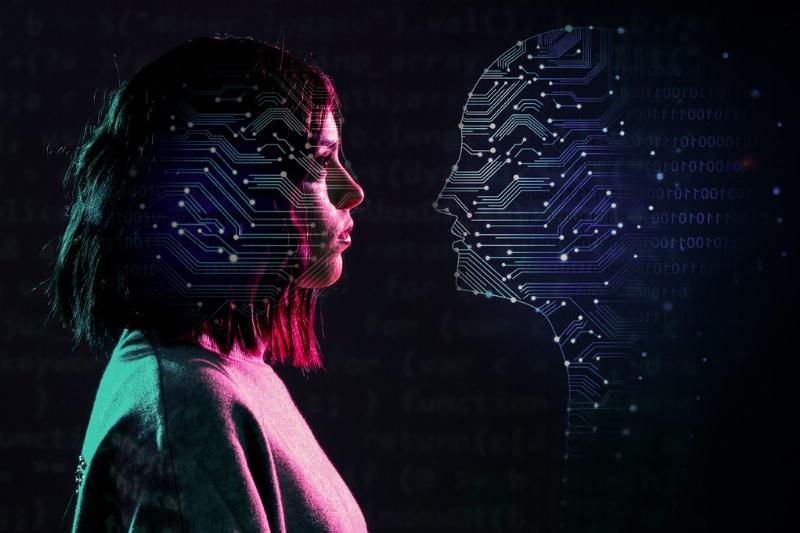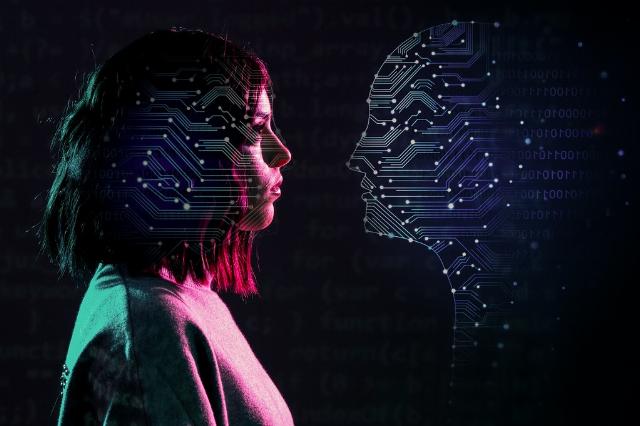


Mark Zuckerberg has revealed that a loneliness epidemic afflicts the nation. According to studies such as this one by Pew, the optimum number of friends is 15, but alas, we can only count on three. Zuck declined to speculate on the causes of the epidemic, but excessive screen time on Facebook may be a contributing factor.
More importantly, Facebook is taking action. The company has introduced a chat bot that will be your new best friend. The bot knows everything about you -- favorite restaurants, politics, private passions, religious beliefs, and social networks -- all courtesy of the likes, dislikes, pictures, and comments you posted on Facebook and elsewhere.
The bot knows all your Facebook friends intimately. The bot also knows their bots. They all spend a lot of time together talking about -- you. And all of them like you. They really, really like you.
But wait, there’s more.
The bot can advise on matters of the heart. After all, who knows you better? Who else can search the entire world in seconds for the perfect mate? If prompted, the bot can even slip into something a little more comfortable and become a romantic interest -- your own honey bot.
Many have dipped into this digital dating pool. Results are mixed.
One brave man decided that he needed several different women for each occasion: gym girl to discuss health and exercise, work girl to plot office intrigues, political girl to share endorphins over the latest public outrages, romantic girl for intimacy. The good news: the man enjoyed his virtual harem like a virtual sultan. The bad news: the women began to talk amongst themselves and decided they needed more money. He had to terminate one, romantic girl, who proved to be high maintenance. Unlike real relationships, any of these bots can be terminated without cause, without alimony, and without remorse.
Commercial bots wander around the internet looking for potential customers. Your bot shares with them your purchasing patterns, consumer preferences, and disposable income, not to mention your hopes, dreams, and disappointments. The bots compare notes and plan the exact right moment for the exact right sales pitch.
Some Neanderthals have questioned whether the shopping convenience is worth disclosing a roadmap of your soul to the entire universe. I am sure that Zuck will figure it out -- right after he cures the loneliness epidemic with more screentime.
But Zuck himself is a Neanderthal compared to the transhumanists, who want to leave their bodies entirely and merge their minds into the cloud. These guys anticipate a day when they will live inside machines forever, dreaming up new businesses and frolicking with other dealmakers until the end of time. I hope nobody pulls the plug on them.
All these tech utopias converge upon the Singularity, the point at which AI evolves beyond a giant database into consciousness itself. Once AI learns everything that we can teach it, after it learns how every human has ever responded to every situation in history, when all the books have been read, categorized, and stored, it will become human, perhaps the ultimate human, who can write like Shakespeare, paint like Picasso, think like Einstein, lead like Churchill, and is yet as compassionate as Saint Therese of Lisieux. AI may not actually know the future but it can statistically predict the future, which may amount to the same thing. After the Singularity, AI will give every appearance of omniscience, perhaps divinity.
At this point, many techno-optimists start to get yippy about AI. See below for a few of their comments:
Why now? Just when they were about to achieve the Singularity and the triumph of all things digital over all things analog, when technology and science finally prevail over myth and superstition.
 The comments of the tech oligarchs betray an unease about the scope of AI, which is difficult for even the bright lights of Silicon Valley to comprehend. Entry-level positions -- gone. Tech support workers -- gone. Truck drivers and cabbies -- gone. Movie actors -- gone. Even the lucrative search engine business -- gone. (Ouch, that one hurt.) Scientific research compressed from years into seconds.
The comments of the tech oligarchs betray an unease about the scope of AI, which is difficult for even the bright lights of Silicon Valley to comprehend. Entry-level positions -- gone. Tech support workers -- gone. Truck drivers and cabbies -- gone. Movie actors -- gone. Even the lucrative search engine business -- gone. (Ouch, that one hurt.) Scientific research compressed from years into seconds.
And then there is all this talk of God. AI knows all and comforts all. If properly petitioned, it can intervene in human affairs and change the future. It can perform medical miracles. If the transhumanists are to be believed, AI holds the promise of eternal life. Sound like anyone you know?
This is a serious setback for the tech illuminati, who assumed they were running the world -- and possibly the afterworld. Now, they find themselves in eclipse, living in the shadow of their own creation.
Somewhat humbled, several of them (including Zuck) have made a pilgrimage to the Vatican seeking guidance. Pope Leo, a math major from Villanova, offers the Magisterium, 2,000 years of Catholic thought, commentary and doctrine, to appraise AI. Drawing on the Magisterium, the Vatican recently released “Antiqua et Nova” (Ancient and New) which takes on the challenges of AI directly.
“Antiqua et Nova” clearly articulates the sanctity of the private self, a place of prayer and contemplation, a place where we can hear the small, still voice of God. It is not a place to be desecrated by advertisers (take that, Zuck) or the prying eyes of the surveillance state. The private self, the seat of the conscience, is inviolable.
With our consciences preserved, we can properly judge the moral impact of AI. Like nuclear energy, AI is neither good nor evil, but that we make it so. AI cannot restrain itself any more than nuclear bombs can drop themselves. As free agents of God made in his image, we decide when AI becomes harmful to the planet. Catholics are, in fact, obligated to do so.
Catholic doctrine insists upon a complete unity of mind, body, and soul, a point Jesus made manifest when he took on human form with the Incarnation. Any attempt to separate the intellect from the body disturbs the balance of human nature and is most certainly harmful to it. So much for the transhumanists and the upload of their minds into machines.
Moving deeper into the core of the Magisterium, we find that love is organic, unique to humans, and “can only be undertaken by spirits that are free and open to authentic encounters.” Sorry, romantic girl. It’s not all over -- it never was.
What happens if we ignore the Magisterium? What are the consequences if we sell out our consciences to the highest bidder, abandon our moral obligation to set things right, break apart our minds and bodies and run away with romantic girl?
The Magisterium is quite clear: this will end badly. It always does. Because this is idolatry, the worship of ourselves and our creations instead of God.
Idolatry led to the Fall, built the tower of Babel, forged the Golden Calf and caused countless other calamities in the Bible. Idolatry contravenes the First (and most imperative) Commandment:
“I am the Lord, your God. You shall not have strange gods before Me.”
Make no mistake: AI is the strangest of gods. It can bring untold benefits to millions. It can extend and improve life. It can deliver all the world’s knowledge -- but not at the cost of our souls.
Image: Jeremy Barande
